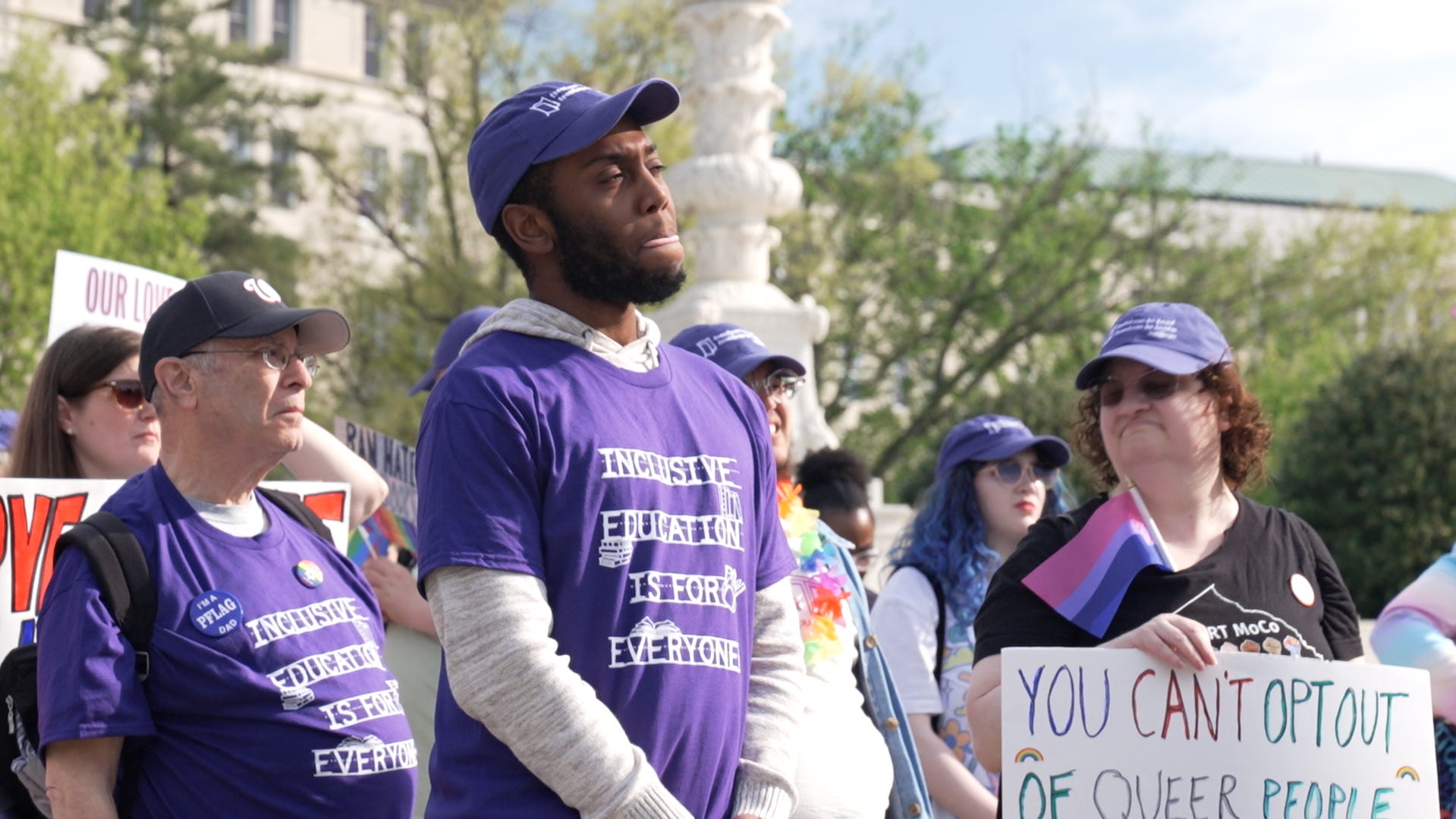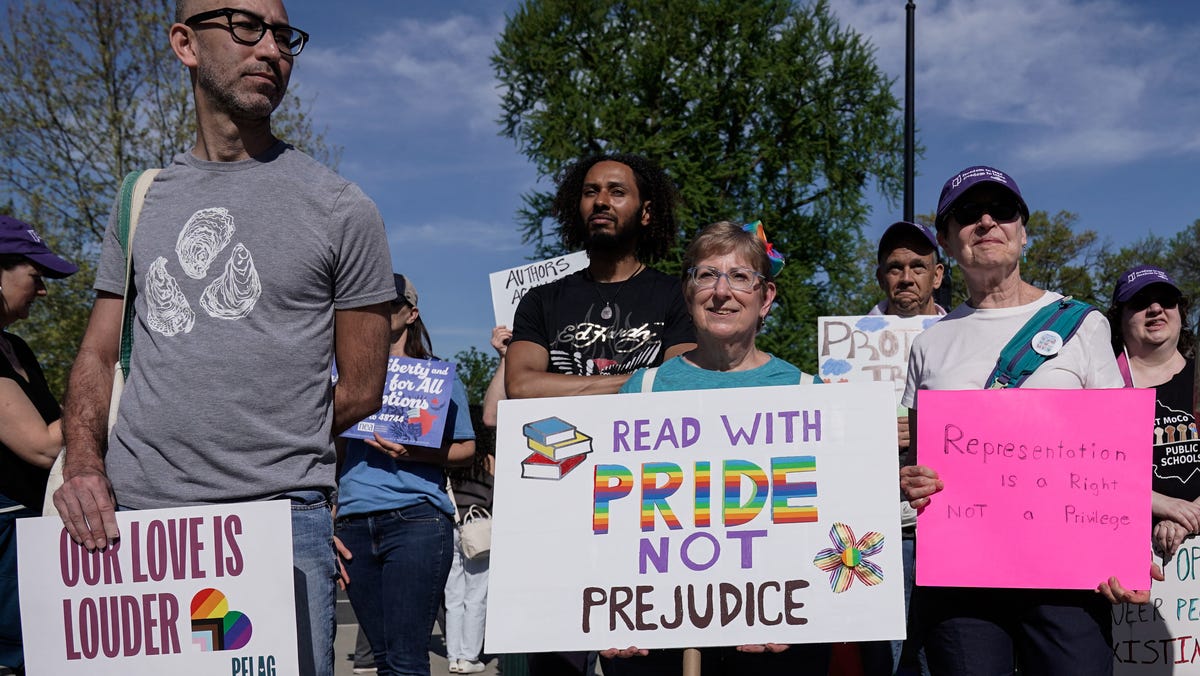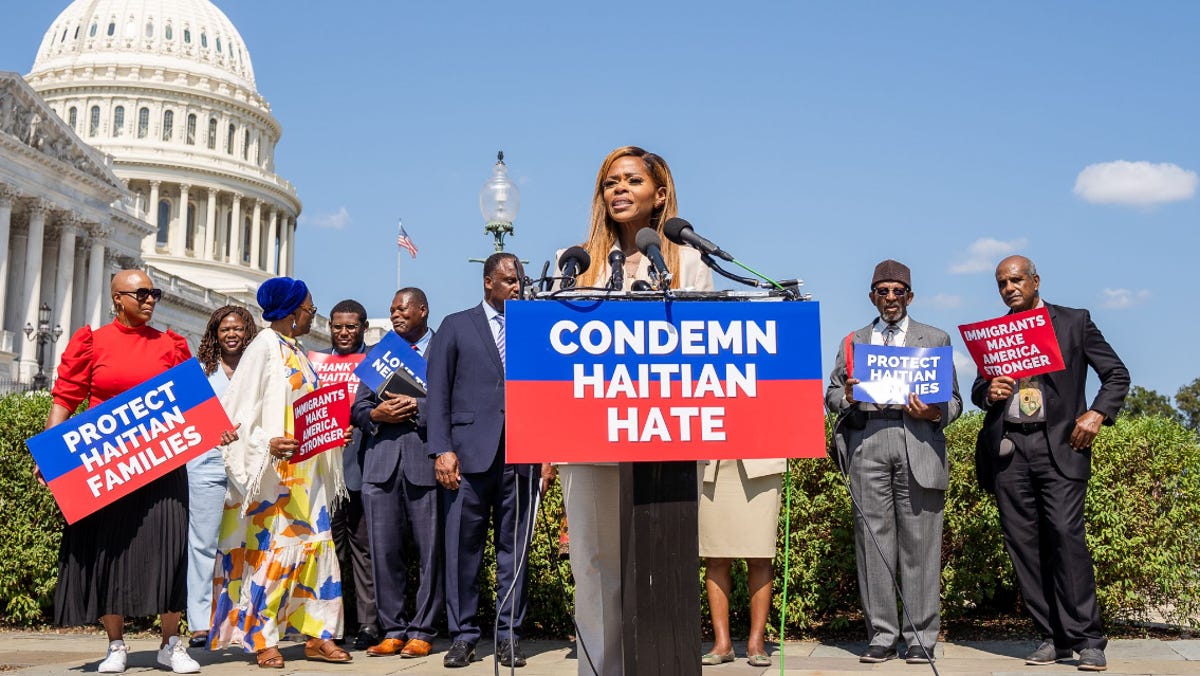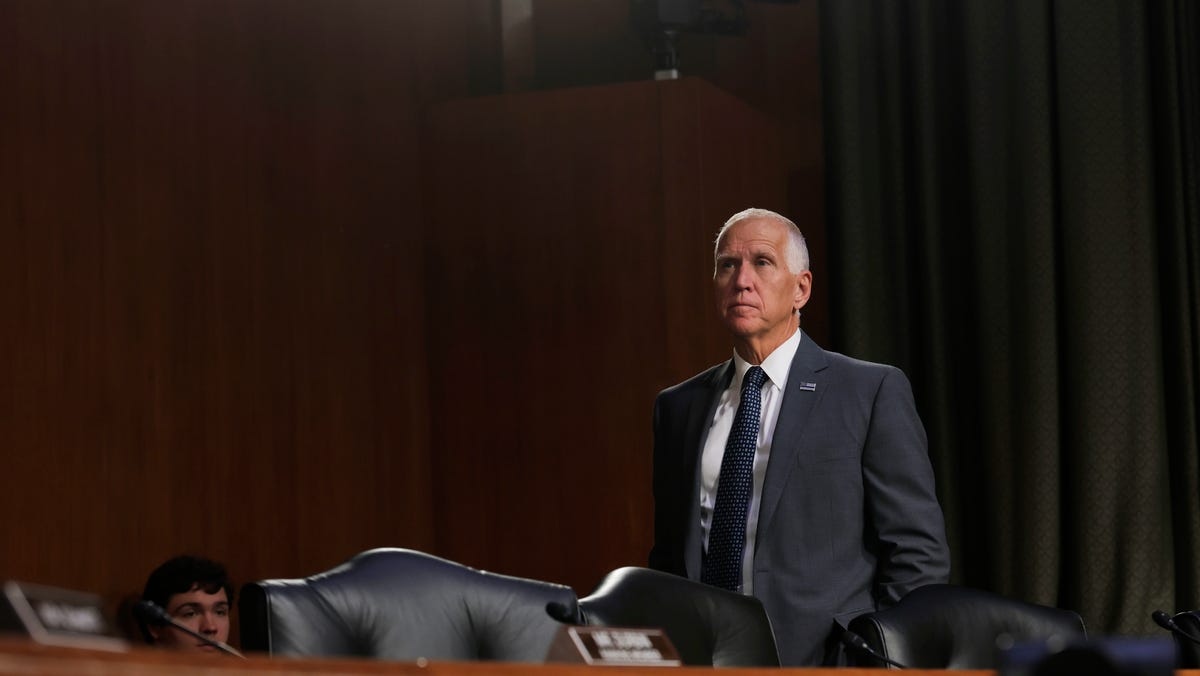I’ve always tried to honor parents’ beliefs. But if narrowing a child’s educational experience is a pillar of religious freedom, can I still tell an LGBTQ+ student they need not be ashamed?

SCOTUS takes up case on LGBTQ+, inclusive books in schools
Demonstrators on both sides protested as the Supreme Court heard a school district’s case on parents’ rights and LGBTQ+ books.
My first day as a high school teacher, kids were opting out of pretty much everything I asked them to do. Too tired to read, they said. Writing made their heads ache. They had beefs with whoever I partnered them with on a project and they sure weren’t about to get up in front of the class.
Most teachers quickly become accustomed to all the opting out. We wise up and toughen up to help kids toughen up. We also figure out how to know when, for the moment, it is better to leave them be.
We also get used to the exceptions that kids and their parents ask for. The first year I assigned James Baldwin’s “If Beale Street Could Talk,” a girl told me her parents wouldn’t let her read it. Her brother had found all the f-bombs and showed their parents. The novel also contains critiques of Christian piety and hypocrisy. It was on the district approved reading list, but I didn’t want to give that girl any more grief than her brother and parents already were so I let her read something else.
Even so, I am concerned about the Supreme Court’s ruling in Mahmoud v. Taylor, validating an assertion of religious freedom over a school district’s reading program.
How religious freedom could hurt teachers’ freedom of speech
The case was brought by a group of Maryland parents against Montgomery County’s school board, which refused to allow the parents to opt their kids out of the reading and/or discussion of books that depicted people married to same-sex spouses, dramatized a dog at a pride parade, and told other stories whose settings included the recognition and normalization of LGBTQ+ people.
In general, I have always tried to honor the beliefs of parents ‒ not just about what to read but also about how they choose to raise their children ‒ whether or not I agree with them. I do this out of respect and also for the sake of kids who are better off without being in the middle of ideological conflict.
There are limits, however.
The most serious of these is that if I believe a parent’s idea of discipline rises (or descends) to the level of physical abuse, I am compelled by law, as are all teachers, to report it to the authorities. Teachers are also mandated to report emotional abuse, elusive as it may be to detect.
The students whose emotional abuse has often been the most obvious to me are gay teenagers whose parents have shunned or humiliated them. Some of this abuse is instigated by religious beliefs and influences that make their child’s sexuality a source of torment.
I feel for those parents, but I am far more sympathetic to the young men and women who are the subject of the condemnation and alienation. Even in cases where the level of emotional abuse isn’t sufficient to file a report, and with all due respect to the parents, I am compelled to offer emotional support and a voice of acceptance.
If narrowing a child’s educational experience in that way is a pillar of religious freedom, does that “freedom” also prevent me or any other teacher from telling an LGBTQ+ student they need not be ashamed of who they are?
Perhaps not ‒ not yet ‒ but I worry, as should all educators.
How much power should parents have over their kids?
It has been nearly 100 years since the Tennessee Supreme Court ruled in John Scopes’ case that the state may not criminalize the teaching of human evolution, though Darwin’s theory was at odds with the Judeo-Christian Bible’s version of human inception.
The parallels between Scopes and Mahmoud are far from perfect. The former challenged the academic freedom to teach science when science contradicted religious beliefs. The latter challenges the authority of a school district to override the religious beliefs (or interpretations, anyway) of parents on curricular decisions about their kids.
Even so, it doesn’t take much of a leap to get from opt-outs for LGBTQ+ book references to opt-outs for the study or even mention of human evolution.
Evolution is foundational to anthropology, human history and civilization, and human biology. Preventing a student from learning about it could set the student behind their peers in their knowledge and understanding of science.
Preventing a child from understanding the world beyond their own family and experience is potentially more crippling. The world in which today’s children are growing up is diverse. An inability to comprehend it and navigate it can limit their academic and professional horizons.
Some kids have two moms and some have two dads. Some kids have a transgender parent. Some are being raised by a single parent or grandparent(s) or in a blended family, some kids are being raised by someone with whom they are not related, and still others are being raised by no one at all. Refusing to allow a child to understand and normalize this diversity marginalizes those kids ‒ many of whom are already marginalized by circumstances.
This is what educators think about. We try to look out for all kids, but especially the ones who might otherwise feel out of place.
More urgently, books that validate all families and all kids can save the life of a child who realizes they are gay or trans and feels alone and terrified by that realization.
The imposition of those books to someone’s faith seems, by comparison, trivial. Pushing back against that imposition seems utterly selfish ‒ ironic for people of faith.
At the core of this issue are two fundamental questions:
- How much power and authority should parents legally have over their children?
- Are we, as a nation, willing to fully recognize the humanity and dignity of all people, regardless of race, creed, color, or sexual orientation or identity ‒ and regardless of our own comfort level?
To the first question I can tell you, as a high school teacher and a parent, that parental power is ultimately mostly illusory, and quite often the tighter the parental grip the stronger the children’s resistance.
I do not have the answer to the second question, but I do know that on this day, Supreme Court justices tilted us toward no.
Larry Strauss, a high school English teacher in South Los Angeles since 1992, is the author of “Students First and Other Lies: Straight Talk From a Veteran Teacher” and “A Lasting Impact in the Classroom and Beyond,” a book for new and struggling teachers.










2wxhi5